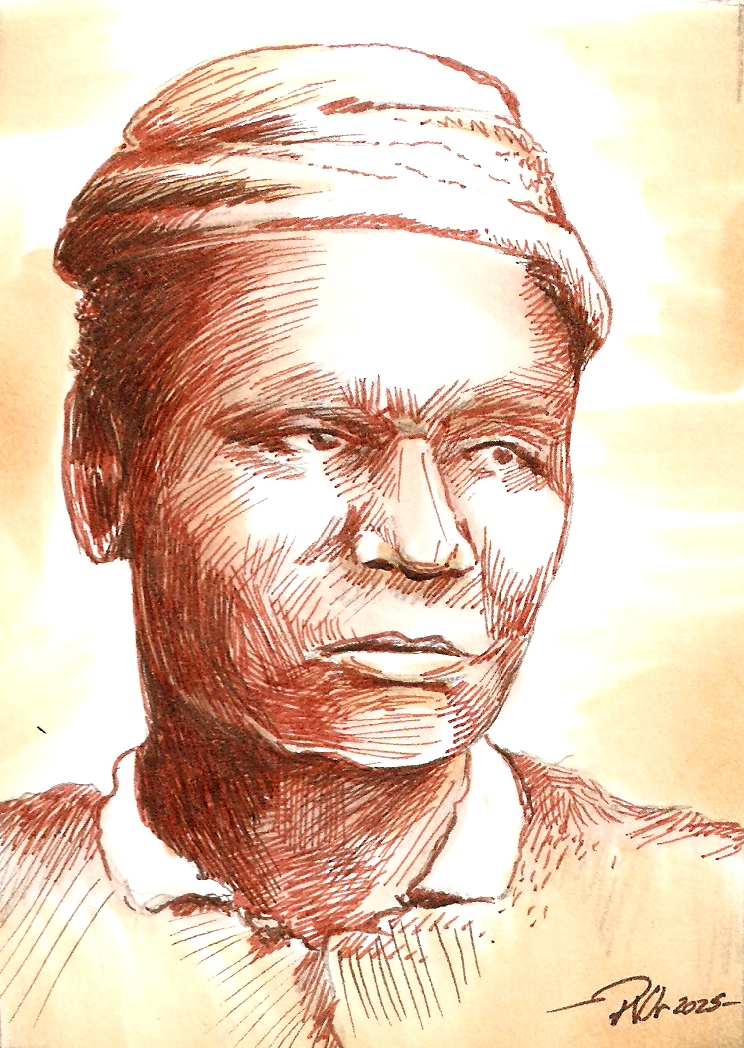 "One of the freest souls ever to draw a breath... or a .38."
"One of the freest souls ever to draw a breath... or a .38." An ongoing illustrative history study
This piece originally posted on 02/19/2025
Prelude | 170 | 171 | 172 | 173 | 174 | 175 | 176 | 177 | 178 | Email |
|---|
 "One of the freest souls ever to draw a breath... or a .38."
"One of the freest souls ever to draw a breath... or a .38."
Put some freakin' respect on the name Mary Fields. Born enslaved in 1832 Tennessee, after the Civil War Mary first traveled west to Ohio, and then eventually settled in Montana with a convent of Ursuline nuns. By all accounts a fierce, short-tempered woman who would never apologize for the space she took up, Mary eventually parted ways with the order and set out on her own (which might --paradoxically-- argue that the nuns held to their creed and did an excellent job raising her!). Other versions of the tale depict her as having been expelled from the order, but whatever the circumstance, by the time she reached her mid-fifties she had established a track record of many entrepreneurships --some failures, some successes. That list includes steamboat chambermaid, groundskeeper, laundry worker, restaurant owner, and madame.
Standing at an intimidating six feet and boasting that she was "always ready for a good cigar and a drink," Mary embraced her reputation as a brawler and was never shy about arguing for unpaid (or underpaid) wages; yet at the same time was famously compassionate with children (of any race), and in particular deeply passionate about gardening. Equally at home in a saloon or at a baseball game, Fields disdained much that was stereotypically female, up to and including her preference for mens' clothing.
In 1895, at the age of sixty, Fields landed a U.S. Postal Service contract to become a Star Route Carrier; essentially a lowest-bidder contract offered to "celerity, certainty and security" freelancers --making her the second woman, and the first African-American woman, in such a role. Known alternately by the nicknames "Stagecoach Mary" and "Black Mary," she drove her assigned stagecoach in all types of weather and over all types of terrain, becoming something of a Wild West legend in her own time. After eight years she retired and took up gardening in Cascade, Montana. She never married nor bore children, but one friendship she cultivated in those later years was the up-and-coming actor Gary Cooper, who later reminisced fondly about her, remarking that she "could whip any two men in the territory" and "had a fondness for hard liquor that was matched only by her capacity to put it away." She died in Great Falls, Montana in 1914, and the city of Cascade established a tradition of honoring her birthday.
For further reading:
John W. Ravage, Black Pioneers: Images of the Black Experience on the North American Frontier (Salt Lake City: University of Utah Press, 1997, 2002).
https://montanawomenshistory.org/the-life-and-legend-of-mary-fields/
Next lesson - Lesson 175: William Still